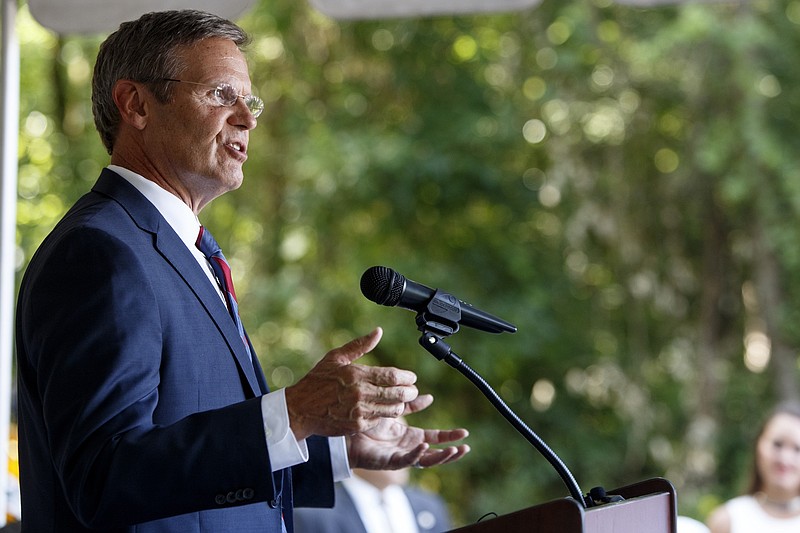Tennessee will submit an application this fall to the federal government for a block grant to replace the current Medicaid formula and give the state more flexibility to spend the money provided by the Affordable Care Act.
Tennessee is the first state to request such a block grant and Gov. Bill Lee said Tuesday he thinks giving the state more flexibility in how it spends Medicaid dollars could improve the way the $12 billion-a-year Tenncare program runs in the Volunteer State.
"We're putting together that (block grant) application now," Lee said during a visit to Chattanooga Tuesday. "We will make a proposal that says what we would like to have so that we can have a deal that's good for Tennesseans and then we will work with the federal government to negotiate with them."
Lee declined to specify any changes the state might propose in its Medicaid waiver request or the recommendations expected from the Health Care Modernization Task Force Lee created this year under the leadership of the commissioner of finance and administration, Stuart McWhorter.
Lee has criticized the inefficiencies in health care and the Affordable Care Act. Earlier this year, the Tennessee General Assembly adopted legislation to seek a block grant waiver from the Centers for Medicare and Medicaid to replace the current Medicaid formula.
The application is due in November "and then there will be several months before the federal government determines what it will do with that request," Lee said.
"We will pursue a deal that is good for Tennesseans and that improves the quality of life for Tennesseans," Lee said.
But Michele Johnson, executive director of the Tennessee Justice Center, said Tennessee is the only state to voluntarily give up the federal-state partnership in Medicaid through such a block grant and she worries it will mean less money and fewer people with insurance in Tennessee.
"Flexibility is a great buzz work, but my question is do we have leaders who are setting aside the politics of health care to deal with the real issues about who is going to provide coverage to so many Tennesseans who need Medicaid coverage," Johnson said. "What is it that the state wants to be more flexible about? Do they want the flexibility to be able to drop children from the program or to cut back on those covered by Medicaid in nursing homes?"
Lee said "every Tennessean deserves to have access to quality health care that they can afford," but he said he thinks the state can develop better ways of delivering health care with a block grant.
"I'll just say that whenever we get money from the federal government it comes with strings attached," Lee said. "The less strings that we can have attached, the more we can craft a health care system that is designed for Tennesseans and that will provide unique services for our unique population in Tennessee because we are different from any other state. That is really our goal. We want to have our citizens have more control over the money that comes from the federal government."
Tennessee is also among 20 states involved in a lawsuit claiming the mandate to buy insurance under the Affordable Care Act is unconstitutional. But earlier this week, Southern Christian Coalition, a group of Christian leaders who support so-called Obamacare, urged Lee to stop the state's role in a federal lawsuit challenging the Affordable Care Act. The religious leaders claim the Affordable Care Act is essential to ensuring people with pre-existing health conditions are not denied insurance or charged significantly higher rates.
Tennessee is one of only 13 states that have not expanded its Medicaid program to the moderately poor. Although loudly opposed by Republicans lawmakers, ballot initiatives to expand Medicaid were approved by voters in 2018 in the deep-red states of Utah, Nebraska and Idaho. Kansas and Wisconsin also elected new Democrat governors who vowed to expand Medicaid coverage.
Johnson said Tennessee could get another $1.4 billion a year, or over $7 billion since the Affordable Care Act was first adopted, if the state would expand its Medicaid rolls as ACA allows.
Lee has previously questioned putting more government money in "a broken system" and said he is looking for better ways to improve health care and affordable coverage. The Health Care Modernization Task Force plans to conduct a number of public meetings this year to gather input on ways to improve health care in Tennessee.
Contact Dave Flessner at dflessner@timesfreepress.com or at 757-6340.
